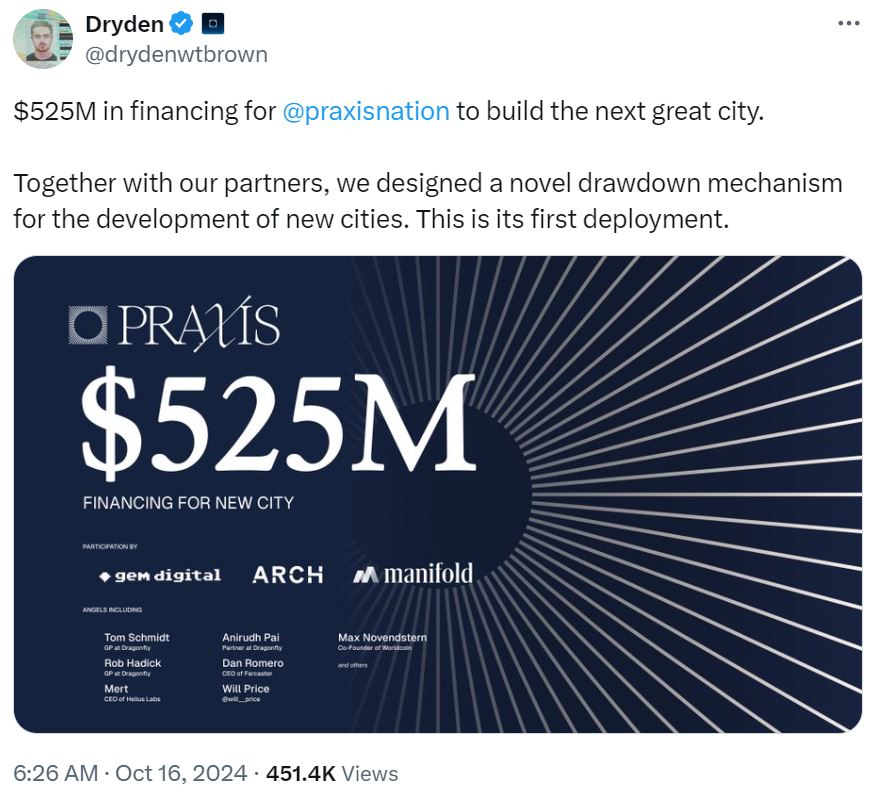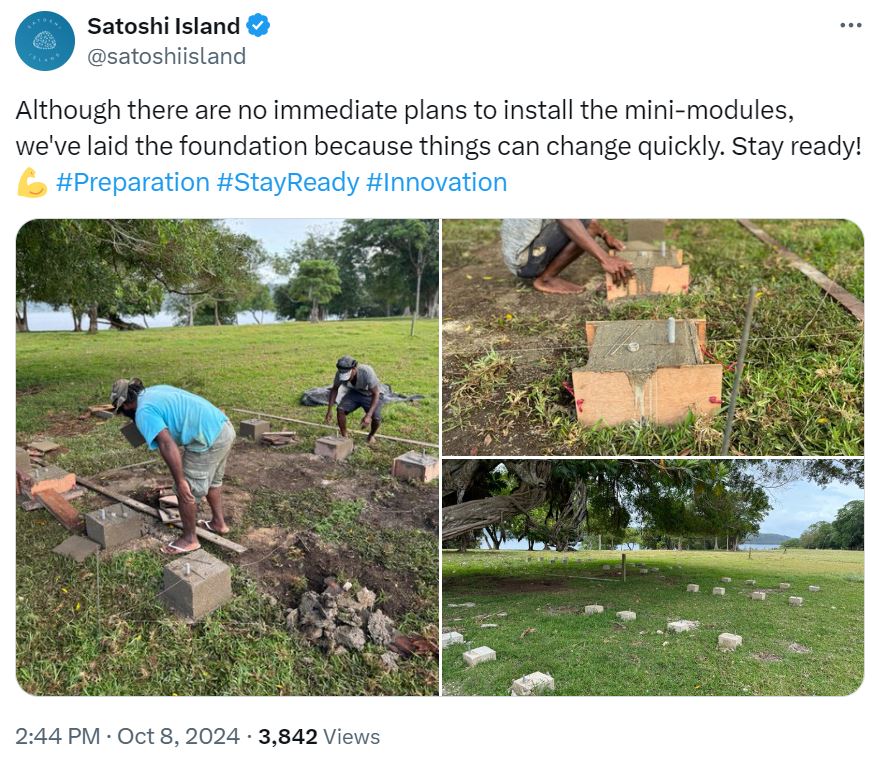Praxis, a project to build a low-regulation city for AI and cryptocurrency leaders, has secured $525 million, mostly from GEM Digital.
A project that aims to build a city with fewer laws for leaders in the fields of artificial intelligence and cryptocurrency has reportedly secured a fundraising pledge of $525 million. On October 15, Praxis, which describes itself as an “internet-native alliance,” said that it has obtained money from a number of different companies.
These companies included the cryptocurrency lending platform Arch Lending and the cryptocurrency investment firm GEM Digital . The proposal promises that the city will “reduce regulatory barriers” for businesses operating in the fields of artificial intelligence, cryptocurrency, biotechnology, energy, and advanced manufacturing, but it has not disclosed where the tech utopia will be located.
Other goals that Praxis has identified include “creating more heroic and beautiful ways of life” through what it refers to as “culture and institution building” and demonstrating to the world that it is possible to “build a great city in the 21st century”.
According to the project announcement statement, architects have a feasible plan for the city that blends “futuristic and classical aesthetics with scalable urban planning. Dryden Brown, a co-founder, led the establishment of Praxis in 2019. Venture capital organizations such as Paradigm, Bedrock, Apollo Projects, Winklevoss Capital, and Day One Ventures have contributed to Praxis’s prior funding rounds.
GEM Digital director Jonathan Collins said in a Wall Street Journal article on October 15 that his company is providing the majority of the funding, or $500 million. In exchange, Praxis is required to supply GEM with cryptocurrency tokens for the purpose of signifying ownership in an upcoming real estate development.

If Praxis wanted to gain access to the capital, it would have to begin listing the cryptocurrency tokens on a public cryptocurrency market. We will give the remaining money in stages, once we reach certain milestones such as obtaining permissions from the local government, purchasing land for the construction project, tokenizing land ownership, beginning construction, and encouraging people to relocate into the city.
In addition, Arch Lending is going to contribute another $25 million. Brown disclosed to the Journal that he was in the process of discussing potential locations for the metropolis in the Mediterranean and Latin American geographic regions.
We expect the first phase of the project to encompass approximately 1,000 acres and employ 10,000 people. Brown expressed the likelihood of selecting a final location in the first quarter of 2025. One of the many planned technological utopias that either never got off the ground or stalled out, Praxis is the most recent example.
The rapper Akon announced in 2018 that he would be building a cryptocurrency-powered smart city in Senegal. However, the project has not made any progress.Only a few buildings have undergone completion, and since the start of the construction process in 2023, there have been no significant updates.

Initiated in 2021, Satoshi Island aims to acquire an entire island near Vanuatu. The vision behind this endeavor was to establish a deregulated stronghold with a blockchain-based economy, as well as a home for crypto professionals.
X published the most recent update for the island on October 7th, stating that it has built foundations and outlined potential locations for some prefabricated structures, but it did not specify when these structures might arrive. This is nearly three years after the initial announcement.
In 2018, it was also announced that there were grand plans to construct a city called Puertopia, which would be powered by blockchain technology within the Roosevelt Roads Naval Base in Ceiba. The fact is, however, that there have been no significant changes in years.
